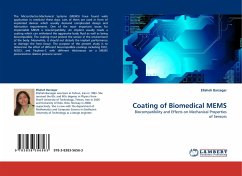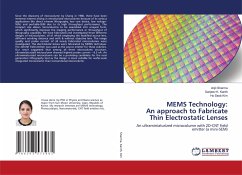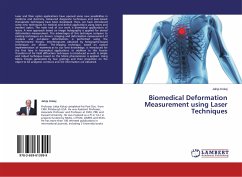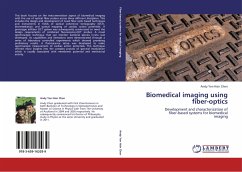The Micro-Electro-Mechanical Systems (MEMS) have found wide application in medicine these days. Lots of them are used in form of implanted devices which usually demand complicated design and fabrication requirements. One of the most important issues for implantable MEMS is biocompatiblity. An implant usually needs a coating which can withstand the aggressive body fluid as well as being biocompatible. The coating must protect the sensor in the environment of the body. Meanwhile, it should not disturb the implant performance or damage the host tissue. The purpose of the present study is to determine the effect of different biocompatible coatings including TiO2, Al2O3, and Parylene-C with different thicknesses on a MEMS piezoresistive relative pressure sensor.
Bitte wählen Sie Ihr Anliegen aus.
Rechnungen
Retourenschein anfordern
Bestellstatus
Storno








